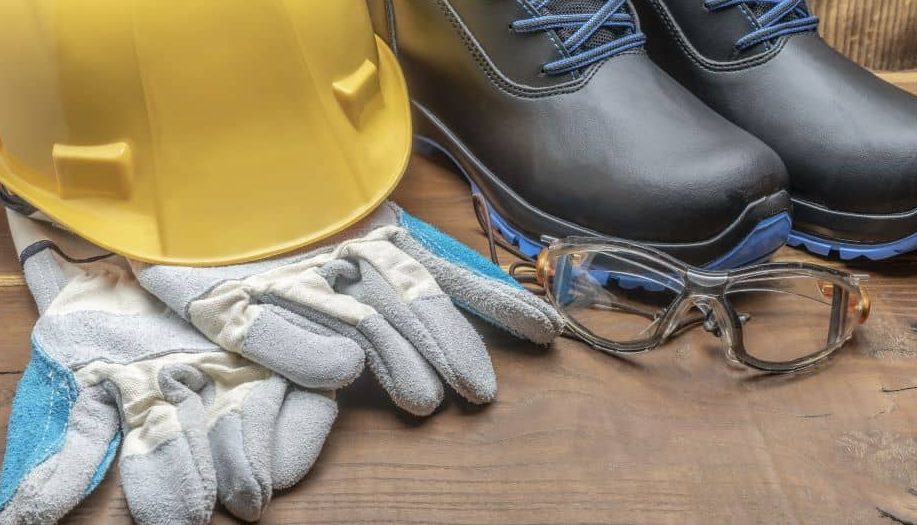Tax Deductible Workwear Guide
Do you wear a suit on a normal working day? Perhaps you’re like other people wearing a uniform with your company’s logo. Many businesses have a dress code, which is one thing that you should confirm with your employer. That way, you know what you can and cannot claim for your workwear come tax time.
The last thing you want is to get in trouble with the Australian Taxation Office (ATO). That’s why we put together this guide, which outlines tax-deductible workwear, as well as clothing that you cannot claim.
Which Types of Workwear Can You Claim?
Clothing expenses, as long as they are work-related, can mostly be claimed as tax deductions. These expenses mainly involve the cost of purchasing, cleaning, and repairing your job-specific clothing, including:
- Your protective clothing unique to your occupation (not your everyday clothes)
- Clothing that tells outsiders what your job is, such as chef’s trousers, apron, and hat
- Uniforms with your company logo or name
You can also claim clothing and footwear that you occasionally wear to reduce the risk of getting injured or developing an illness. Some examples include:
- Steel-capped boots
- Overalls, High-visibility shirts, pants, and vests
- Non-slip shoes for nurses
- Rubber boots for concrete contractors
- Hard hats
- Fire-resistant clothing
Apart from the ones mentioned above, you may also be allowed to claim deductions for aprons, overalls, and smocks that you wear over your ordinary clothes. The articles of clothing mentioned are typically worn to protect your everyday shirts or dress from damage or dirt.
What Can’t You Claim?
It’s easy to remember which types of workwear are claimable and which are not. The key is understanding that only those specific to your particular occupation can be claimed for a tax deduction. If you can wear the clothing outside of your workplace, you cannot claim the purchase, repair, and cleaning of the item. Some examples are:
- Business suits, even if your employer requires you to wear them
- Other types of office attire
- White shirt and black trousers (if you work as a bartender)
- Clothing purchased in a clothing store where you work, such as shirts, jeans, socks, and heels
Some people assume that certain ordinary clothing items like socks and closed shoes are protective clothing. However, they do not have qualities that will protect the wearer from work risks. Therefore, it’s not possible to claim a deduction for everyday clothes.
What about Your Laundry and Work Clothing-Related Cleaning Expenses?
It is possible to claim washing and other services like drying, ironing, and dry cleaning. However, it is a requirement that you only claim eligible work clothes. There should also be written evidence that you hired laundry services for your work attire. Such evidence can be in the form of a diary entry or a receipt.
Note, however, that you can only claim laundry costs if your claim exceeds $150. Additionally, your total claim for workwear is greater than $300.
Now, what if you decide to do the washing, drying, and ironing yourself? Does it mean you cannot claim deductions? The good news is that you are entitled to certain tax deductions. According to the ATO, you can use the following calculations for determining how much you can claim for a do-it-yourself laundering:
- $1 per load each time you wash, dry, and iron work-related clothing
- 50 cents for each load if you include other items that are not related to your job
In certain occupations, it can be a little bit difficult to determine the tax-deductible workwear and other related expenses. For example, nurses can typically claim for their uniform purchase and laundry, as well as their non-slip shoes, stockings, socks, or ties. However, these clothing items should first be deemed compulsory and are an integral part of their attire at work.
If you are a nurse, you can claim a tax deduction for occupation-specific clothing, which includes clothing that cannot be considered ordinary. When worn, your clothes should immediately show other individuals that you work as a nurse.
Nurses, doctors, and healthcare workers usually have a recognisable ensemble of clothing. But what about those who do not wear uniforms? For example, if you are a professional driver, you probably wear conventional clothing. While your employer may tell you to don a specific colour of a polo shirt or even formal wear, this type of clothing is not tax-deductible, unfortunately.
However, it does not mean that you cannot claim for any expenses incurred from your workwear. You can claim the cost of your attire if it is considered a compulsory uniform. This uniform should identify you as someone employed by a specific organisation. Therefore, even if you wear jackets, jumpers, pants, or shirts, you may be able to claim a deduction.
If you work as a driver, other costs can be offset from your tasks, such as:
- Sun protection items, including sunscreen, sun-protection shirts, sunglasses, and hats
- Other protective equipment that your employer did not supply for you, such as gloves, goggles, steel-capped boots, winter jackets, and masks
- Stationery and diary costs
- Briefcases or work bags
Are Sunglasses and Sunscreen Tax Deductible?
There is no concrete answer to this question because it all boils down to your profession. In short, it depends on the job that you do. If you primarily work outdoors (e.g. a driver like in the given example above), you can claim the costs of your sunglasses, sunhats, sunscreen, and other related personal protective equipment.
On the other hand, if you simply wear sunscreen to protect yourself from the sun, you may not be able to claim a deduction. If your job does not entail working outdoors, you cannot claim a tax deduction – even if you were exposed to the harsh sun almost every single workday.
Do You Need Proof to Claim?
If you have claimed tax deductions before, you may already know that some purchases do not require evidence, such as receipts and diary entries. However, workwear expenses and claims should have proof to make the process easier and faster. The ATO has made it clear you may have to provide supporting evidence if requested. Most of the time, you will need to prove:
- Why you chose to calculate your laundry expenses the way you did
- Why you wear specific clothing for work
- Your process of calculating the total claim figure
If you received an allowance from your employer for clothing purchases, repair, or laundry, you would not be allowed to claim for these expenses. The ATO, however, requires that you show the amount that you receive as your allowance for those services on your tax return.
Final Reminders
There are clear guidelines that you need to follow to make a successful workwear expense claim. First, you should only claim a tax deduction for clothing types that are related to your job and are related to earning your income. Second, the clothing type should be as specific as possible to your profession. If you are claiming a deduction for a chef’s hat, you most probably will get the deduction. However, if you are claiming deductions for any other hat you wear on your way to your job, you won’t get a tax deduction.
Another thing is that you have to have spent the money to pay for the purchase from your pocket. So, if your employer did not reimburse the workwear-related expenses you paid, you are entitled to a tax deduction. And finally, you need a record to prove it. You can provide either a receipt or a diary log that explains in detail how you arrived at your calculation.
The Workers Shop is where you can purchase all your workwear necessities. Many clothing types may be tax-deductible depending on your occupation. Start shopping for quality work garments today.


